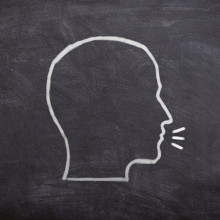Why can some people imitate accents?
Lia asked us why some people seem to be naturally good at imitating voices and accents. To get the last word, Adam Murphy got an answer from Jonathan Goodman, from the Language Sciences Department at Cambridge University...
In this episode

00:00 - QotW - Why are some people so good at accents?
QotW - Why are some people so good at accents?
Adam Murphy set out to find an answer to Lia's question...
Adam - Do you call the letter after Q, “oar”, or “are”? Do you say “Bath”, or “bath”? There are nearly as many accents as there are people who speak. But why does that happen? Jonathan Goodman, from the Cambridge Language Science Department filled us in.
Jonathan - I think there are two layers of answers to this question. The obvious explanation has to do with upbringing, although there’s likely an element of natural talent involved, just like with stage acting. We know, for example, that if you grow up bilingual, you’ll be more effective at speaking in the appropriate accent in either language, and probably in foreign languages generally. So there’s probably an element of exposure to multiple languages (and by consequence, accents) within a particular window — usually about the first ten or so years of life.
Adam - So if you grow up around loads of accents, you might be able to imitate them easier. Maybe all our exposure to American television on this side of the Atlantic might give us an edge. But there’s more to it than that.
Jonathan - The second layer, I think, has to do with the evolutionary origins of human communication. Some research in linguistics and evolutionary anthropology suggests that the diversity of languages can in part be explained by kin (or, according to some, group) selection, whereby the pronunciation of particular words signals a connection with a certain kin or group.
Adam - Like a sports jersey for our vocal chords then.
Jonathan - The classic example is the Biblical case of ‘Shibboleth,’ in which, after a battle between two tribes, the victors distinguished between their own tribe and the enemy by asking everyone crossing a river to pronounce the word, ‘Shibboleth.’ Members of the defeated tribe were known to pronounce the word differently, allowing easy distinction between those in the group, and those not.
Adam - That might be an extreme example, but it shows the importance of accents for being part of a group.
Jonathan - If accents evolved, at least in part, to allow people to distinguish kin from everyone else, we’d expect this to have profound implications for how language evolved and continues to evolve. We might then expect people with more diverse linguistic, or even genetic, backgrounds to be able to emulate foreign accents more effectively — but until more extensive research is done, we can’t say for sure.
Adam - Thank you Jonathan for lending your voice to that. Next week we’re hitting the bar, for an answer to this question from Donald.
Donald - How does ethanol interact with the brain and why does it disproportionately affect the area involved in behaviour and movement rather than the parts of the brain involved in vision, hearing, touch or the brainstem involved in breathing, blood pressure and heart rate?
Related Content
- Previous Periodic Table: 150 Au Years
- Next Treating asthma differently










Comments
Add a comment